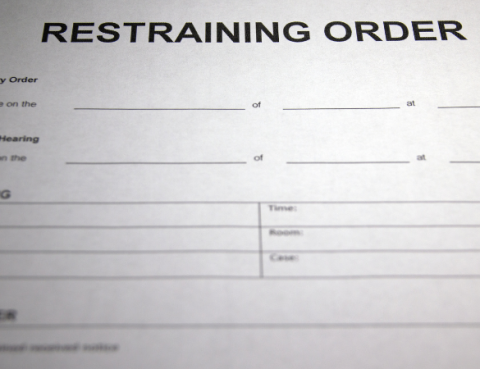Division of Assets and Debt – Divorce Laws Illinois
One of the most important issues that needs to be resolved when a divorce occurs is the division of property and assets. All finances and assets must be disclosed to determine what is considered marital property and how the marital property will be divided. The other thing that must be considered with the division of assets is any debts the couple may have. It can be difficult for couples to reach an agreement regarding these issues which is why it helps to work with an experienced attorney.
The attorneys of Barber Law Offices LLC can help negotiate the division of assets and debts for divorcing couples in Schaumburg, IL. We will take the time to understand the assets and debts involved and help negotiate a settlement that is in your best interests. Negotiating sensitive issues like this requires a level of skill and expertise and our attorneys have years of experience helping with these types of negotiations.
Determining Marital and Non-Marital Property
Illinois is an equitable distribution state which means that marital property is divided in a way that is determined to be equitable by the court. Marital property is not divided in half.
Marital property is any property acquired during the marriage in either spouse’s name. This can include homes, vehicles, joint bank accounts, personal possessions, business interests, investment accounts, and real estate property. Marital debts are also included in the division of marital property. During a divorce, the court will grant each spouse what they deem to be an equitable share of the marital property, including assets and debts.
Non-marital property includes property acquired by one spouse before the marriage or after the legal separation as well as property that was a gift or inheritance to one spouse during the marriage. If there is a pre-nuptial agreement, any property included in the agreement is not considered marital property and therefore not subject to division.
In many cases, it can be difficult to tell marital and non-marital property apart. One such situation is when a spouse moves into a home owned by the other spouse prior to the marriage, but contributes to the mortgage payment, maintenance, and home improvements. In a case like this, an attorney would have to help determine whether the spouse that contributed to the non-marital property of the other can be reimbursed for their contribution.
Division of Marital Property with Allen Gabe
Separating marital from non-marital property, and marital from non-marital debts, can be a complicated issue. Our attorneys are experienced dealing with matters concerning the division of marital property and debts and we will work to protect your rights and interests during negotiations. If we cannot reach a settlement, our attorneys are prepared to represent you in court and help ensure a favorable outcome. Our goal is to help you get your fair share of the marital property and avoid unfairly being stuck with non-marital debts.
If you are going through a divorce and have concerns about the division of marital property and debts, talk to our divorce attorney, Allen Gabe, at Barber Law Offices LLC. You can reach us at 847-303-9780 to schedule a free initial consultation.
Related Legal Services:
Family Lawyers Illinois
Divorce Lawyers Palatine, IL
Divorce Lawyers Hoffman Estates, IL
Divorce Lawyers Arlington Heights, IL
Divorce Lawyers Barrington, IL
Divorce Lawyers Bartlett, IL
Divorce Lawyers Barrington Hills, IL
High Asset Divorces in Illinois
Tips for Couples Over 50 Going Through Divorce
How to Plan for a Divorce
Related Blogs
Infidelity disrupts the foundation of trust in a marriage and often forces spouses to decide whether rebuilding the relationship is possible or if divorce is the healthier option. Studies show that approximately 10–15% of women and 20–25% of men engage in extramarital affairs, and the emotional fallout can be devastating. Common red flags include a…
When a marriage ends, divorce may be unavoidable, but children don’t have to suffer alongside their parents. Co-parenting after divorce is entirely possible, even when former spouses struggle to get along. This guide, compiled by our experts, explores proven strategies to build a healthy co-parenting relationship and ensure your child’s well-being. According to the Centers…
Divorce is one of life’s most challenging experiences, filled with emotional turmoil, legal complexity, and difficult decisions. In fact, more than 20 percent of first marriages end in divorce within five years, and 48 percent of marriages dissolve by the 20-year mark, highlighting how common these situations are. Couples on the path to divorce may…
An order of protection is a legal tool designed to help keep individuals and families safe from an abuser. In Illinois, three types of protective orders may be granted when proof of abuse is presented. Understanding what a protective order is and the options available can empower individuals to take the necessary steps to protect…
Couples facing divorce may benefit from working with a mediator to settle their differences outside of court. Divorce mediators guide partners in reaching amicable agreements, helping to ease the process. In this guide, we discuss the role of a divorce mediator, along with the steps and expectations involved in mediation. What Does a Divorce Mediator…
FREQUENTLY ASKED QUESTIONS
to dissolve a marriage. You must have lived apart for at least six months, which can be waived
if both parties agree. Barber Law Offices helps clients in Cook, DuPage, and surrounding counties
navigate the legal process with clarity and care.
but not always equally. The court considers factors such as income, contributions to the marriage,
and the needs of each spouse. Our attorneys work to ensure your financial interests are protected
during property division.
court trial. However, court appearances may be necessary for contested issues like custody or asset
division. We represent clients throughout DuPage, Kane, and Will Counties, advocating for favorable
outcomes both in and out of court.






